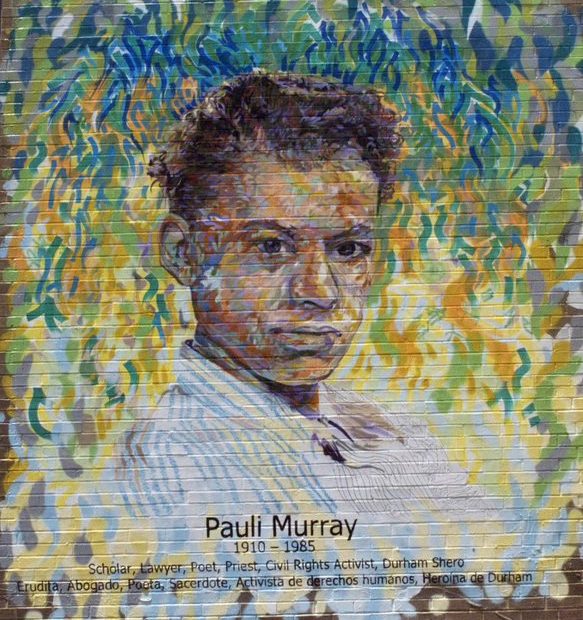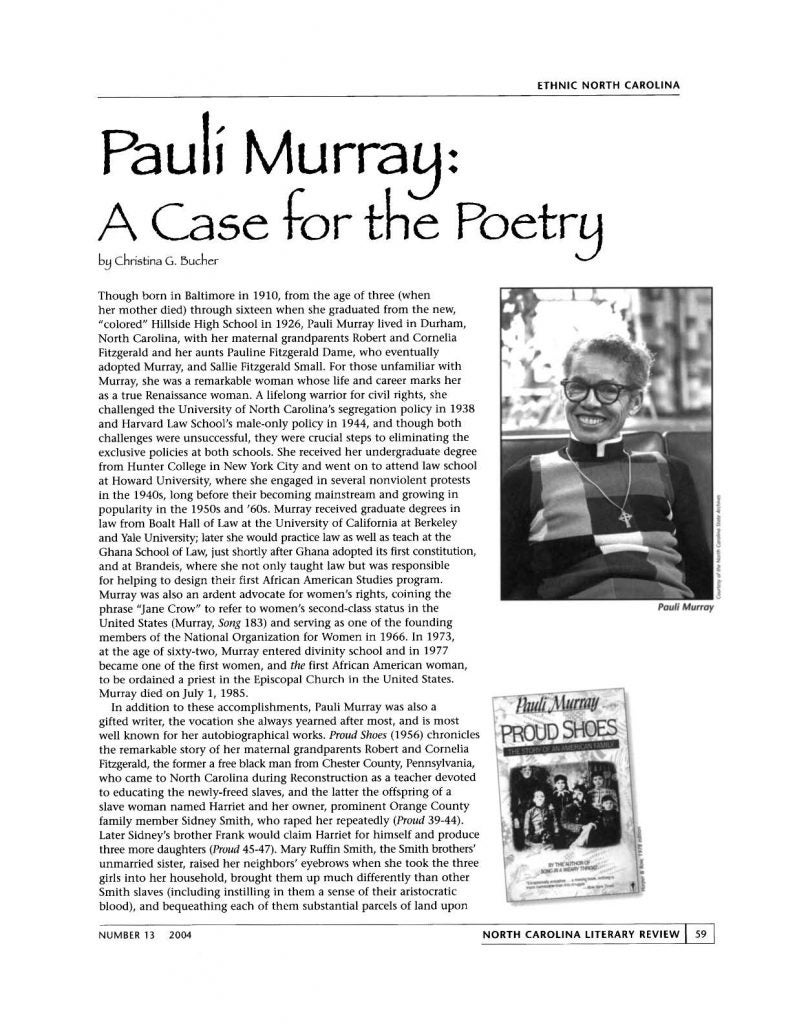Friday from the Archives: “Pauli Murray: A Case for the Poetry” by Christina Bucher from NCLR Issue 13 (2004)
“The Pauli Murray Center is thrilled to share that Pauli Murray, the pioneering activist, scholar, poet, and priest, will be featured on a series of U.S. quarters beginning in 2024 as part of the U.S. Mint’s American Women Quarters Program.” NCLR celebrates, too, this recognition of a North Carolina writer.
In NCLR Issue 13, published in 2004, Professor Christina Bucher examined the poetry Murray wrote and published. Specifically, Bucher provides a scholarly look at the protest poems found in the singular volume published in 1970: “Dark Testament” and Other Poems. “In focusing on the protest poems, what I’d like to assert is that Murray writes protest poetry that is often powerfully fueled by anger and bitterness, expressed with vivid and original imagery, but that she also professes hope that oppression of all kinds will end; she maintains optimism, more than likely sustained by her strong Christian faith and unwavering commitment to nonviolent protest, that love and compassion and cooperation will prevail.”
Bucher touches on the few other scholarly reviews of Murray’s poetry; in doing so, she helps situate Murray’s work within the context of artistic movements. Bucher writes, “Milgram also asserts that with most of the poems being composed from the 1930s through the 1950s, the volume “helps to bridge the gap between the Negro poets of the Harlem renaissance and the radical black poets of the nineteen sixties” (n.p.).”
Although Murray wrote several other books, many essays, and countless law and liturgical documents, Bucher believes “the poetry is a rich repository of Murray’s work that has yet to be mined; it is worthy not only for the quality of most of the poems in the collection but also for the further insight the volume provides into Murray’s life.” “Dark Testament” and Other Poems was out of print at the time of Bucher’s original essay but, happily, reissued in 2018 by W.W.Norton.
*Editorial note: Bucher uses she/her pronouns for Murray throughout the essay, which was standard for the time and is also used by the Pauli Murray Center when writing about Murray’s later work. To learn more about Murray, pronouns, and gender identity, we refer you to the Center’s webpage.
The 2004 issue featuring “Ethnic North Carolina” is not yet available on ProQuest. You can order the issue for your collection.

